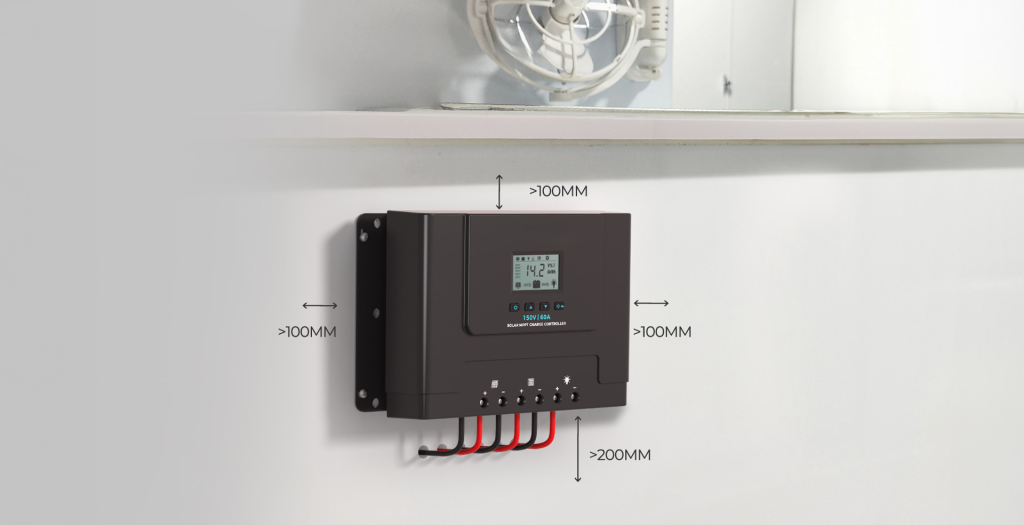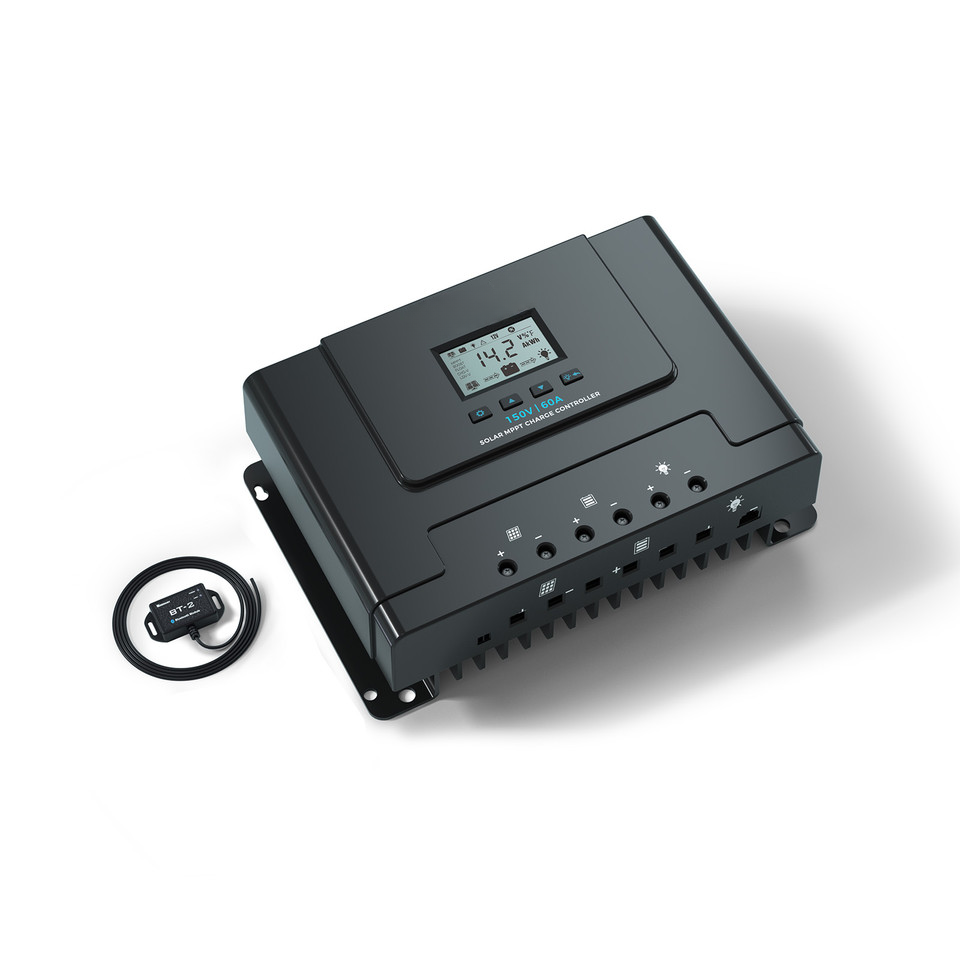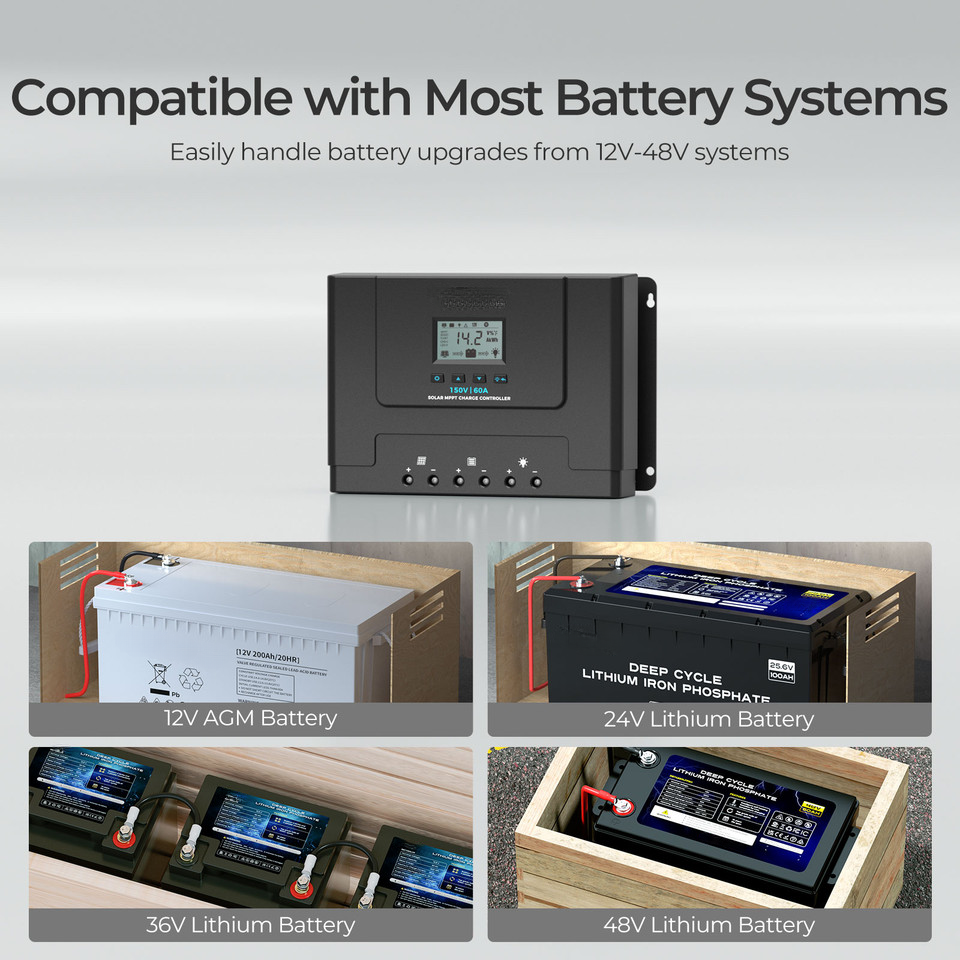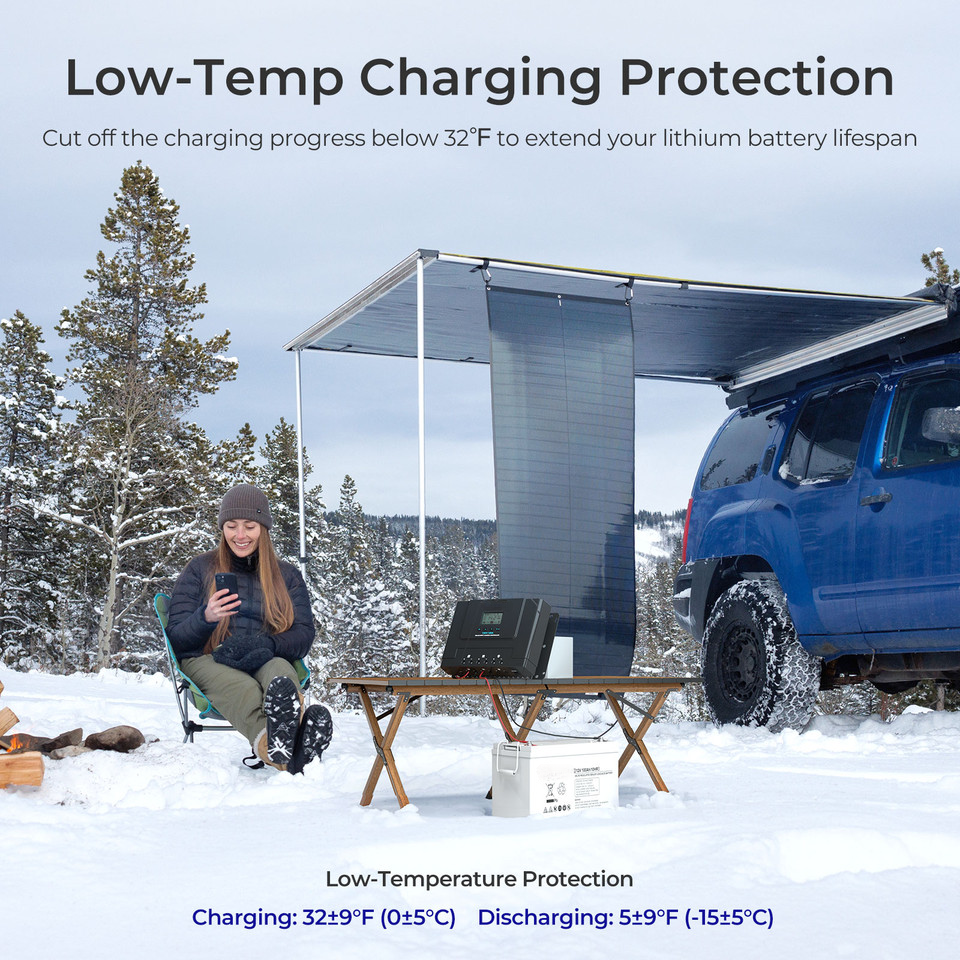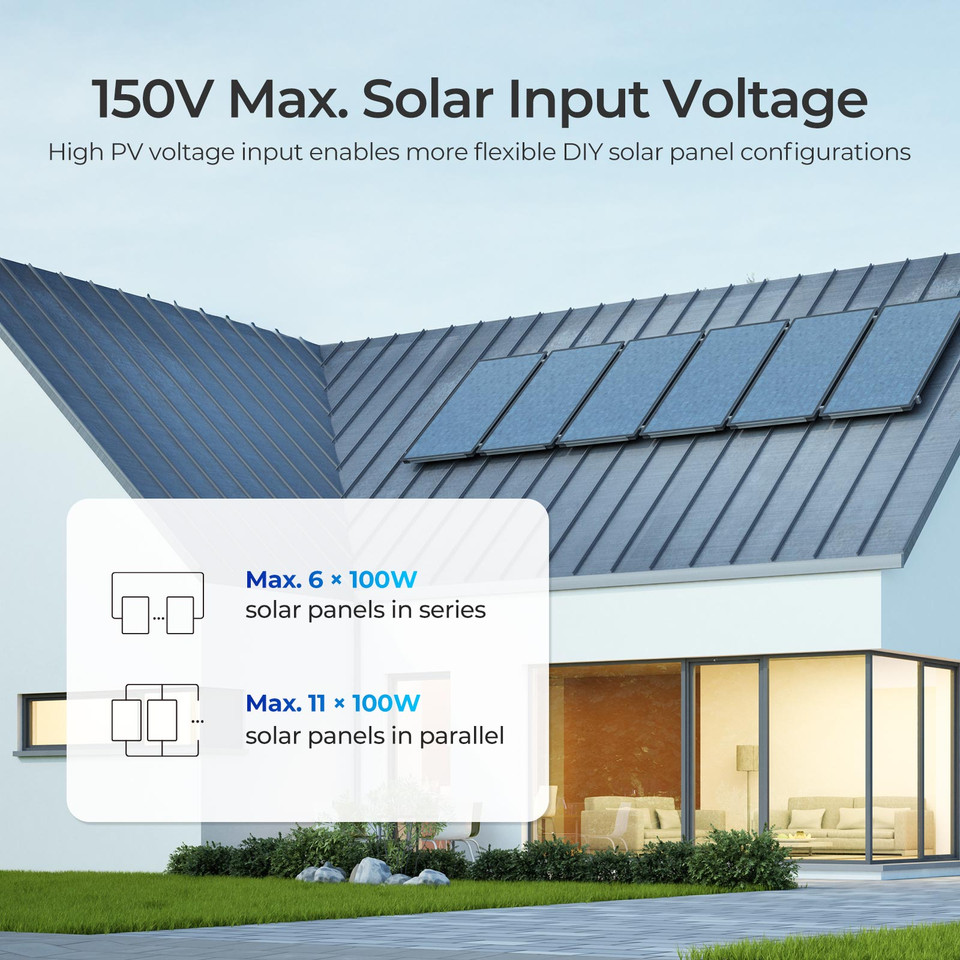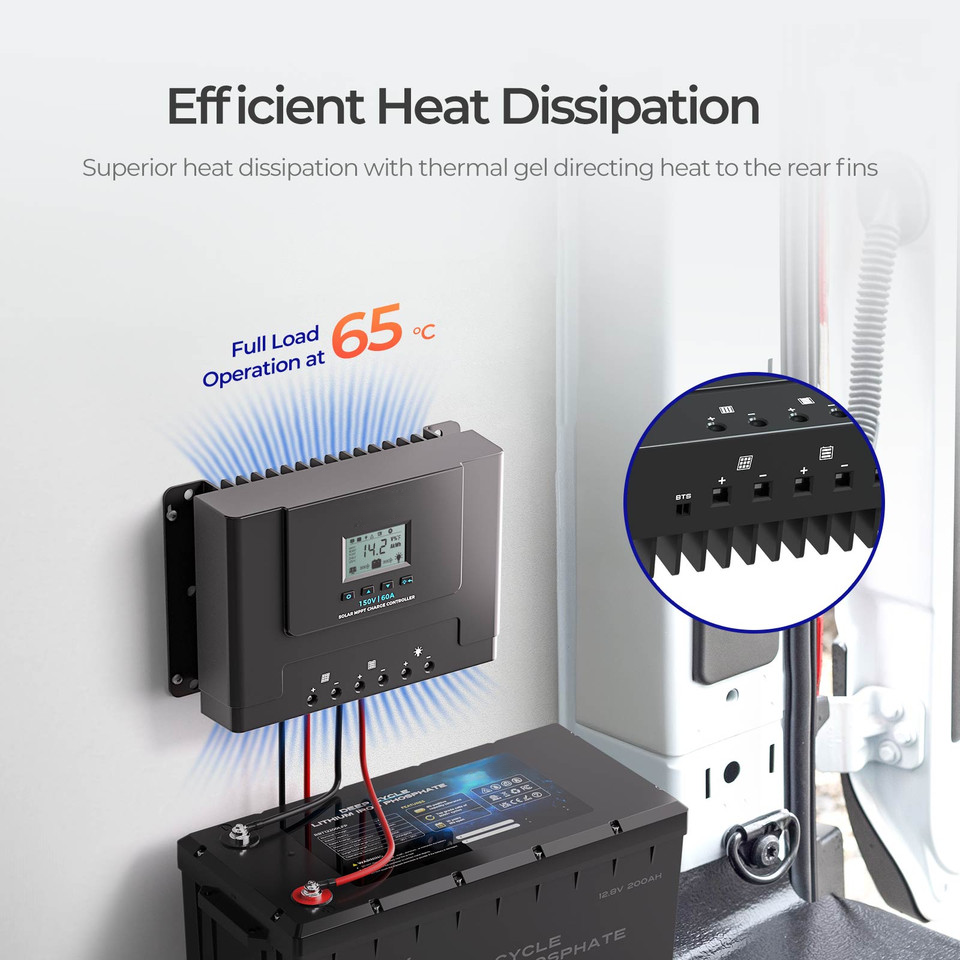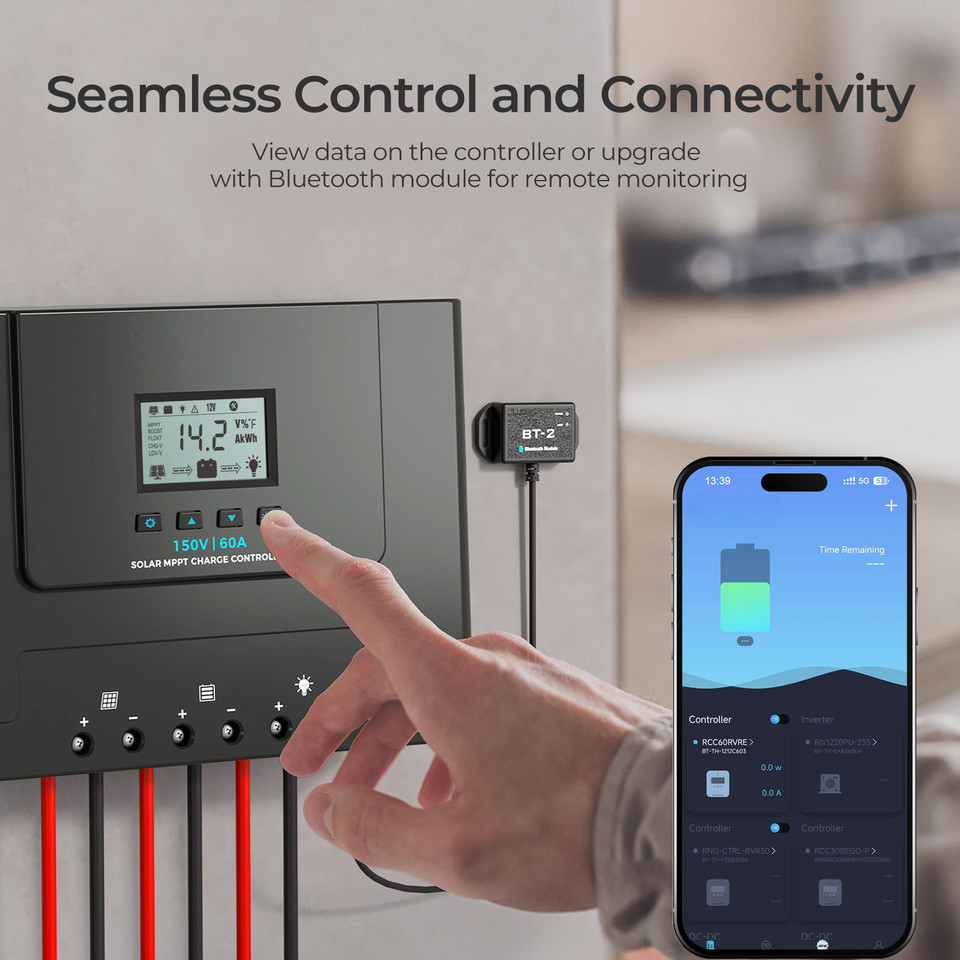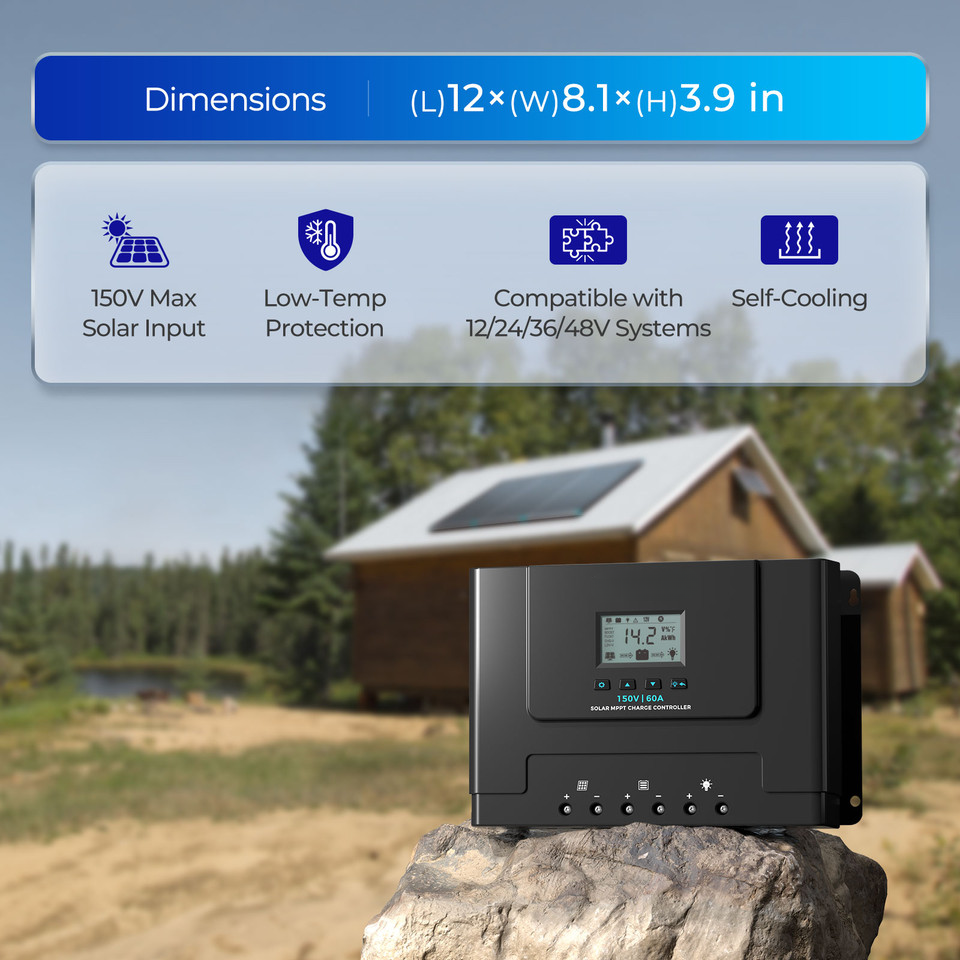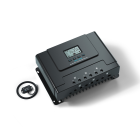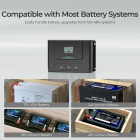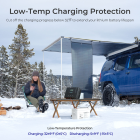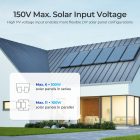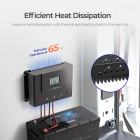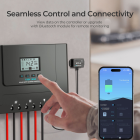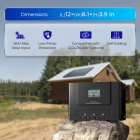Description
12V / 24V / 36V / 48V 60A MPPT Solar Charge Controller
A robust MPPT solar charge controller supporting 12V, 24V, 36V, and 48V battery systems, with a maximum solar input voltage of 150V. Engineered with advanced low-temperature protection to ensure reliable performance in harsh environments.
Advanced Heat Dissipation Technology
This MPPT solar charge controller features internal potting that efficiently transfers heat to the external metal heat sinks, preventing overheating and ensuring consistent performance. Designed for optimal energy management, this advanced system guarantees reliable and efficient charging, making it the ideal choice for solar energy applications.
Exceptional Value with Maximum Efficiency
Designed to optimize solar power output, this 60A MPPT charge controller achieves an impressive 99% tracking efficiency and 97% conversion efficiency. Combining high-performance capabilities with affordability, it delivers outstanding value for users seeking cost-effective energy solutions.
12V / 24V / 36V / 48V 60A MPPT Solar Charge Controller |
|
|
General Data |
|
| Grounding: Common Negative | Communication: RS-485 |
| Operating Temperature: -31℉~113℉ /-35 ℃ ~65℃ | Storage Temperature: -40℉~176℉ /-40 ℃~ 80℃ |
| Humidity: 0%~95% RH | Cooling: Heat Sink |
| Enclosure Rating: IP32 | Dimensions (LxWxH): 305 x 205 x 99 mm / 12.01 x 8.07 x 3.90 inch |
| Weight: 3.5 kg /7.71 lb | Regulatory and Safety Specifications: FCC Path 15, Class B, CE, RoHS |
|
Charger Data |
|
| System Voltage: 12VDC / 24 VDC / 36 VDC / 48 VDC (Auto Recognition, Non-Lithium) | Battery Input Voltage Range: 9VDC~64VDC |
| Rated Charge Current: 60A | Maximum Solar Input Power: 900W (12V Battery); 1800W (24V Battery); 2000W (36V Battery); 3200W (48V Battery) |
| Maximum Solar Input Voltage (Voc): 150VDC | Power Consumption: <15 ma (12V Battery)
<11 ma (24V Battery) <8 ma (36V Battery) <7 ma (48V Battery) |
| MPPT Tracking Efficiency: >99% | Conversion Efficiency: >97% |
| Temperature Compensation: -3mV / ℃ / 2V (Non-Lithium), 0mV / ℃ / 2V; no compensation (Lithium) |
Charger Algorithm: 3-stage Lead Acid, Bulk, Boost, Float, Equalize*
2-Stage Lithium, Bulk, Boost |
| Charger Preset: AGM, Gel, Flooded, Lithium-iron Phosphate, User Custom | |
|
Warranty Information |
|
| Accessories: 2-year material warranty | |
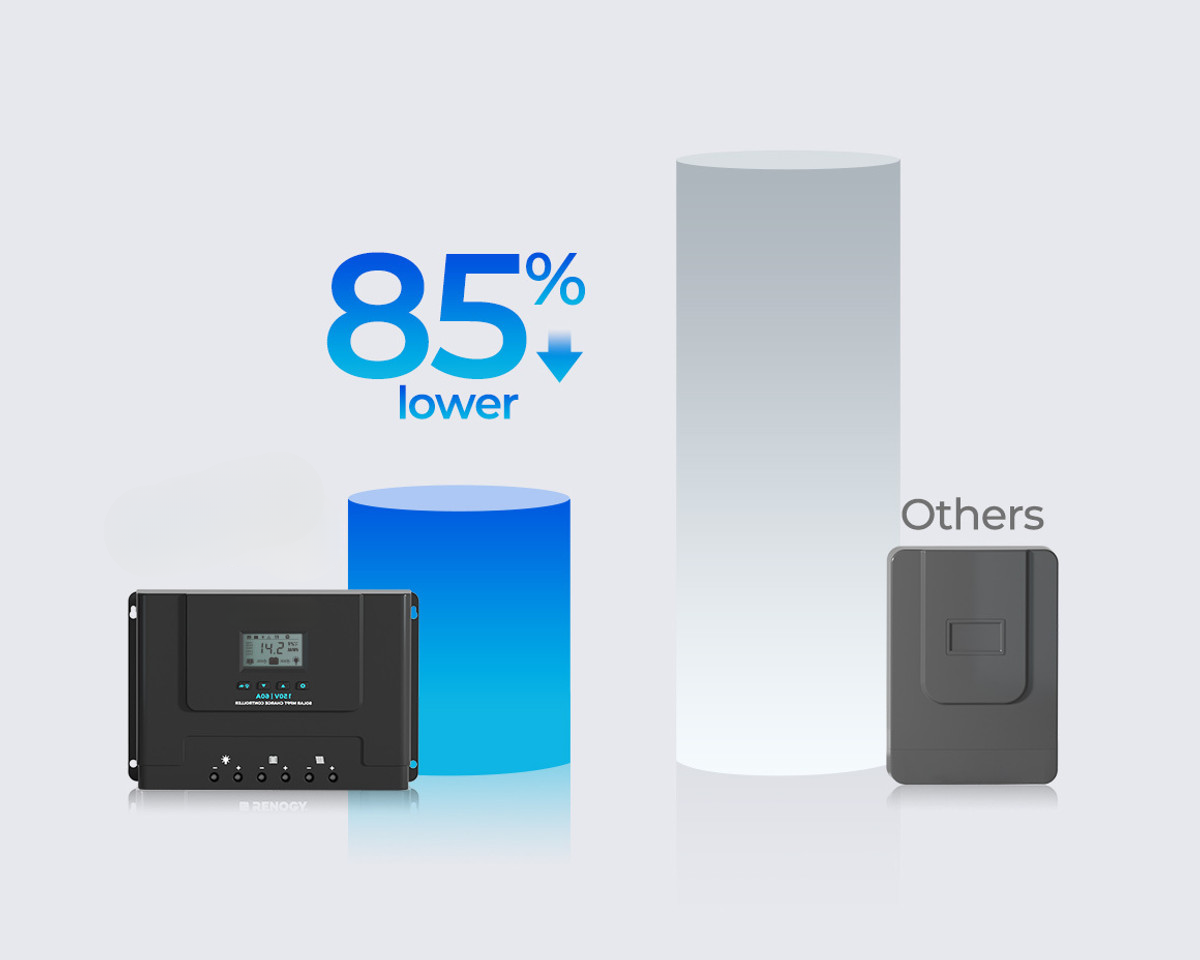
85% Reduced Self-Consumption
This MPPT solar charge controller features ultra-low self-consumption of just 0.18W in 12V systems — an 85% reduction compared to the 0.7W typical in other controllers. By minimizing energy loss, it ensures that more solar power is directed to charging your batteries, maximizing efficiency and solar energy utilization.
Store Data for Up to 2 Years
Pair this 60A MPPT charge controller with the BT-2 Bluetooth module to monitor performance and store up to two years of data. Easily access historical records and make precise system adjustments for optimal efficiency.
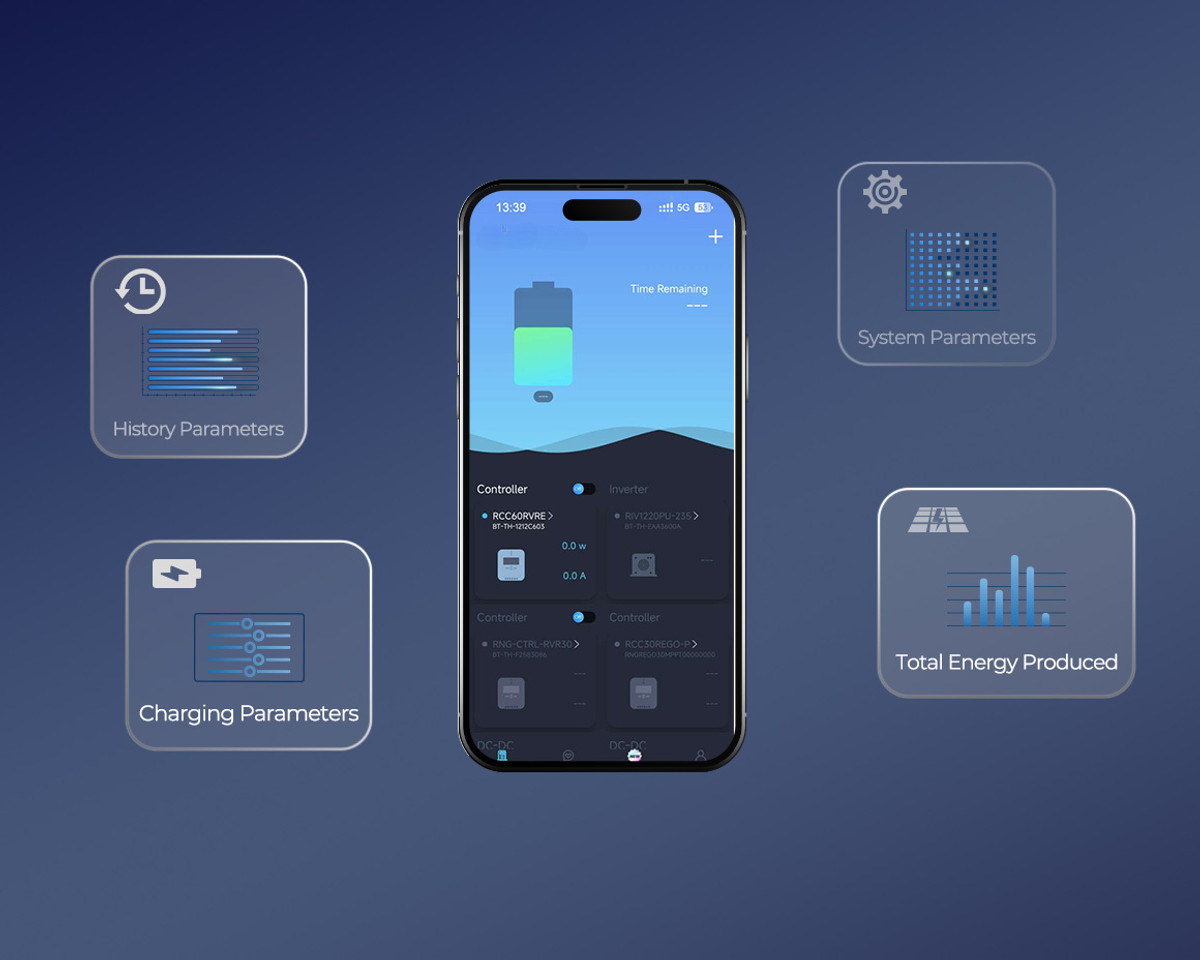
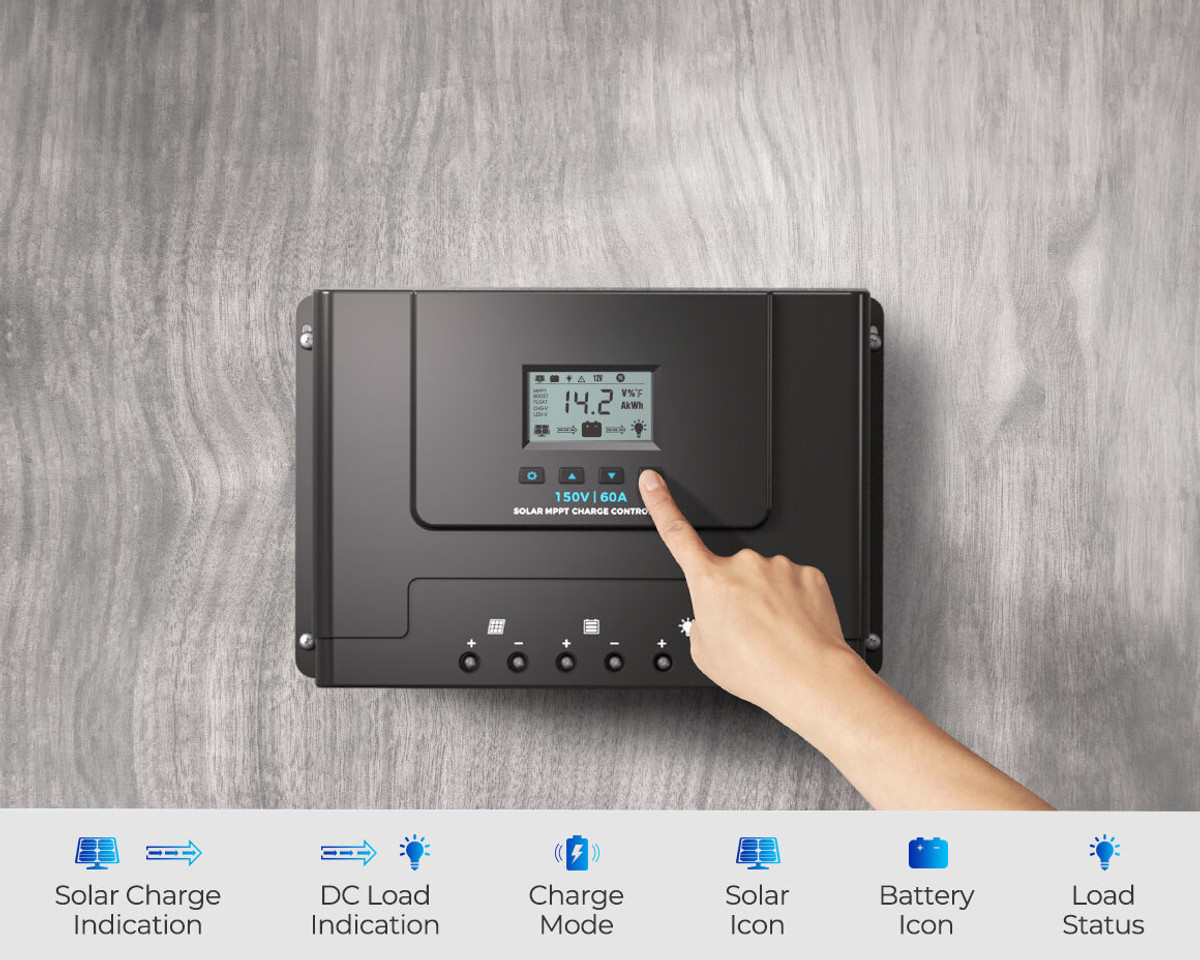
Intuitive Controls with Clear Display
Equipped with user-friendly buttons and a bright LCD screen, this solar controller provides quick access to real-time charging data, allowing you to monitor your system effortlessly at a glance.
Reliable Performance in Extreme Temperatures
This MPPT solar charge controller ensures stable full-load operation up to 65°C and safeguards your system with low-temperature protection below 0°C. Designed to protect lithium batteries during cold-weather charging, it delivers dependable performance in all conditions, making it an ideal choice for temperature-sensitive environments and off-grid adventures.
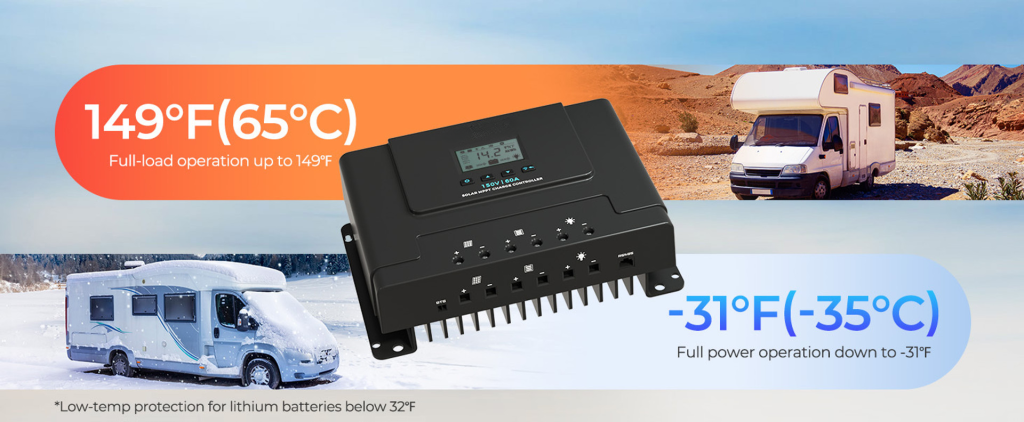
Installation and Ventilation Guidelines
Before installing your MPPT solar charge controller, select a cool, dry, and weather-protected location. Ensure adequate ventilation space to support proper heat dissipation and maintain optimal performance.
